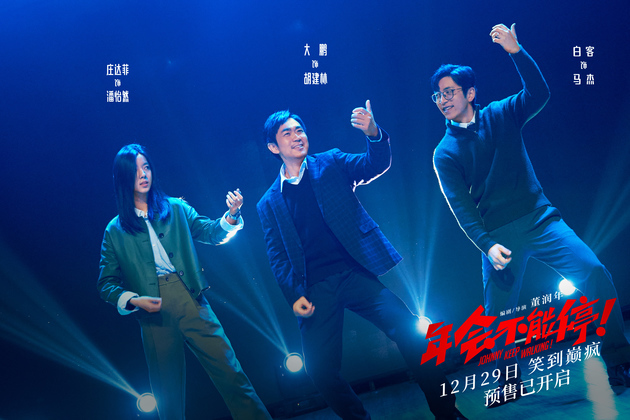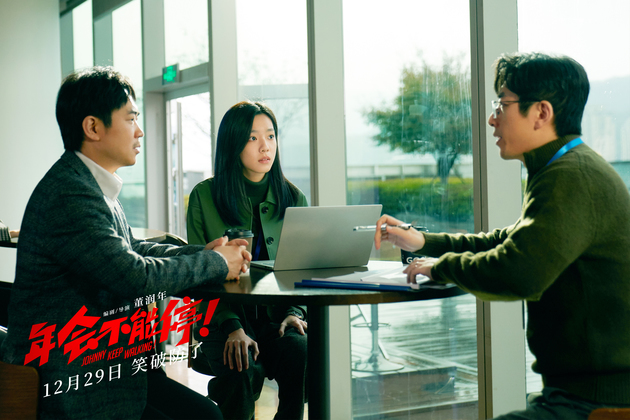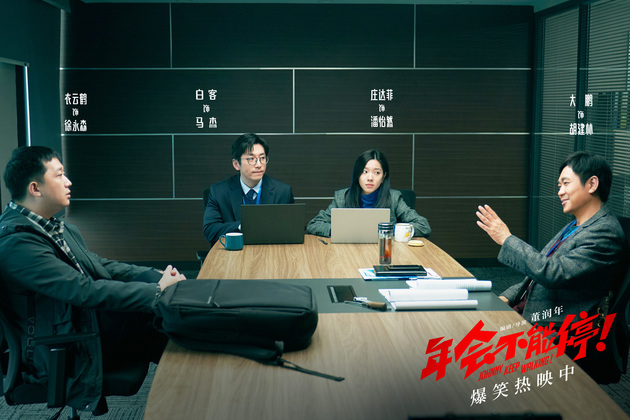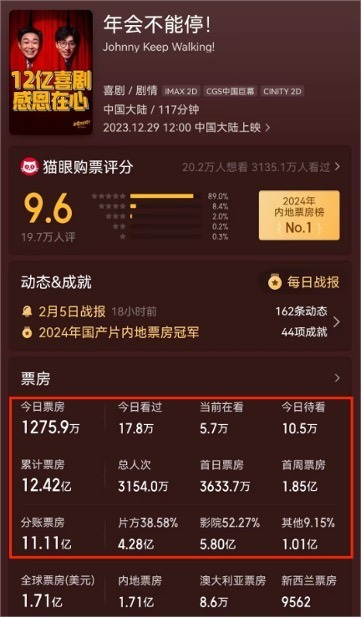As the Spring Festival approaches, year-end bonuses and performance reviews have become sensitive topics among office workers.
In the past, big tech companies like Tencent, Alibaba and ByteDance offered year-end bonuses of dozens of months' salary and generous lucky draws at their annual meetings, which were the envy of the outside world. However, as the myth of high growth no longer exists, these big companies have also started to become more pragmatic. Even ByteDance, which is pursued by countless entrepreneurs, has listed "enhancing sense of crisis" as its annual goal.
At a recent employee face-to-face meeting, ByteDance CEO Liang Rubo claimed that organizational mediocrity has already appeared in ByteDance, and it has all the major corporate diseases, so the company has set the keyword for 2024 as "always starting up, escaping the gravity of mediocrity". On February 7, ByteDance veteran Zhang Nan resigned as CEO of Douyin Group and will focus his energy on internal entrepreneurship on the CapCut product.
The popularity of "Johnny Keep Walking! " also lies in its touching on the real feelings of Internet workers. In the five-year cycle of repeated interviews with big companies and repeated script creation, it is the epitome of the ecological changes after the Internet giants have run wild and reached their peak.
In the past few years, the mobile Internet has changed from rapid growth to reaching its traffic peak. While young start-up companies have grown into giants, they have also entered a "midlife crisis".
The train of the times roared past, and the people in it felt the most deeply. When social emotions become pragmatic, when the "big company disease" under the slowdown of growth becomes apparent, and when the "big company dream" is no longer the goal of everyone, where should the "attitude" of the working people be placed?

Photo/Douban Poster
Not afraid of working overtime, but more afraid of meaningless work
A few days ago, Ma Huateng said in a speech at Tencent's annual meeting that "work is not about making PPTs for your boss", which reveales the hearts of countless workers.
At the end of each year, "PPT competition" often becomes a unique phenomenon in large companies. Just as Bai Ke, who plays the role of HR Ma Jie in the movie, complained: "I worked hard on the work, but others are better at reporting, so the credit goes to them."
Similar to the PPT culture, there is a set of jargon in Internet giants that corresponds to the ecology of big companies. "Align", "sink", "pull through", "grasp", "bite", "combination punch", these Internet "jargon" frequently appeared during the high-speed growth period of big companies.
Xiao Chun (pseudonym), an Alibaba employee who has worked in many different large companies, recalled that when these jargon and PPT culture first emerged in 2015-2016, employees did not reject them, "because you are growing, even if you are very busy and tired, you are willing to do these things, and you are motivated to work hard." However, since 2020, the organizational structure of large companies has become big, ineffective work has increased, and communication makes people tiring, meaningless, and unable to bring positive feedback. Everyone started to complain. "(Now) you have to first prove that your position is valuable, and everyone's core goal has become to keep their job."

Photo/Douban
"Alignment" is the most complained about by many big factory workers.
Just as "alignment granularity" became the mantra in the movie, no matter whether you understand it or not, it is always right to summarize it with a sentence "alignment granularity". As for the real intention of the leader, it can only be understood and cannot be expressed in words.
"After working in ByteDance for three years, I think it is very exhausting." After leaving, Zhong Ziliang felt emotional when he reviewed his previous work. "You are immersed in countless message documents every day, and there are countless things to deal with, to align, and to meet. The basic norm is to meet during the day and write documents at night and on weekends. Finally, you have to rely on some big projects."
For big tech company employees, the 7×24 hour work system is commonplace. "Some companies issue vacations, and everyone will tacitly agree not to take them, and will default to a hidden rule: business is the first priority." An employee of a large Internet company said.
"Even if I was sick and couldn't speak, I had to attend some meetings. I was once communicating with a colleague about work, and he said he was sorry that he had to go for a minor surgery in the afternoon." Zhong Ziliang told NBD. After learning that his colleague was sick, Zhong Ziliang's first reaction was: "How will the work be handed over next?"
In fact, at first, it was not the case for employees who were eager to show their skills in big factories that have always been known for their "advanced and relaxed" and "flattened management". In the period of rapid development of the Internet, big factory work brought to young people not only high salaries and decency, but also a "sense of growth" and "satisfaction" that other traditional jobs could not match.
Many practitioners of large Internet companies told NBD that it is undeniable that the huge growth that this profession has brought them in the first few years of working in big factories. "Keep learning new things, grow rapidly, make achievements, and your income and rank will also gradually increase. It is very fulfilling."
When the "big tech comany" starts to become mediocre: big companies have all the diseases they should have
The movie "Johnny Keep Walking!" sets up the Zhonghe Group as a conglomerate, but the bitterness of the workplace life in the film hits the "heartbreaking moments" of Internet workers.
"This is something we find very interesting. Logically speaking, we are not presenting an Internet company, but why do many 'Internet big factory' employees feel that it is their portrayal?" Dong Runnian said. In the past, all walks of life were learning "Internet thinking", and Internet companies that have succeeded in entrepreneurship are regarded as representatives of flat, efficient, transparent and convenient organizations. But why can the plot that satirizes formalism and bureaucracy allow "big factory" workers to accurately empathize?

Photo/Douban
In Dong Runnian's view, any system, when it becomes large enough, will produce redundancy.
Entropy increase is inevitable. Whether in Silicon Valley or Zhongguancun, as long as they stop self-examination and reform, the once agile and flexible entrepreneurial stars will become mediocre and slow.
"Inefficient, many things require the participation of many employees, regardless of size, and then each person sees incomplete information; slow, not as sensitive to opportunities as startups; and standards are lowered. Although the company has always emphasized that documents should be concise, accurate, and easy to understand, there are still many documents that are tens of thousands of words long, full of jargon, and have endless abbreviations that do not directly address the problem." Liang Rubo summarized: "In a mediocre and inefficient organization, employees will feel more tired, because even if they work very hard, the final result is not ideal... But how they will seek for more challenging work.
The protagonist in "Johnny Keep Walking!" even has to perform at the year-end party in order to meet the chairman and tell the truth.

Photo/Mao Yan
When social mood becomes pragmatic: what are we working for?
When he signed the employment contract, Xiao Chun breathed a sigh of relief. “To be honest, I didn’t understand a word when HR explained the bonus system to me. People who came from big companies no longer pick and choose, they just think that having a job is good enough, face is not important, survival is everything. Having a job is something to be happy about.”
“People have become more pragmatic about work, and so has the social mood. They don’t play with those empty things.” Xiao Chun said, you can tell from the PR gift boxes of internet companies, sending something practical, like food, is better than sending something flashy.
Before, Xiao Chun would feel ashamed to say “budget travel”. Now he boldly joined the hot trend of “travel commandos”. When time and money are both scarce, and you still want to go out and have fun, isn’t that being a travel commando?”
He complained about the company while working hard. But he would always wonder in his head when he stayed up late to make PPTs - why do we work? How much effort is worth it for work?
The economist Keynes predicted in 1930 that by the end of the 20th century, with the advancement of technology, people in developed countries would only need to work 15 hours a week.
The anthropologist David Graeber wanted to know why this prediction did not come true today. He later found out that automation technology did indeed reduce productive work, but the time freed up by it was wasted on more newly created, meaningless work. He proposed in his book “Bullshit Jobs” that things like filling out forms, evaluations, etc. are all work requirements that are made up, making people busier and busier, to the point where you realize that although you seem to be busy every day, you don’t know what you are busy with, or where the meaning is.
How to fight against this “sense of meaninglessness” and the anxiety that comes with it?
“Besides satirizing the bureaucracy and irresponsibility in the workplace, what we really want to express is that we hope the audience will get some warmth and strength after watching the film.” Dong Runnian said. Workers don’t want to turn themselves into a tool that only makes the boss feel “handy”, just like the protagonist sang in the annual meeting, “The company is a machine, it only has a destination, but we are not screws, we are human!”
In Zhong Ziliang’s view, work solved his two core problems. “One is income, the other is social identity. If I can also accumulate skills and experience here, that would be even better. Don’t think that leaving this job is a wasteland of life, it’s actually not.”
“As long as you work, there will be some ‘workplace culture’ that you don’t like.” Zhong Ziliang said, “The micro-environment is very important, if your team trusts each other and can cooperate well, it can ease a lot of anxiety.”
In addition, Zhong Ziliang and Dong Runnian both mentioned life outside of work - cherish intimate relationships, maintain physical health. Lift your head from your phone, feel the real communication between people, these gaps are very precious.


 川公网安备 51019002001991号
川公网安备 51019002001991号





